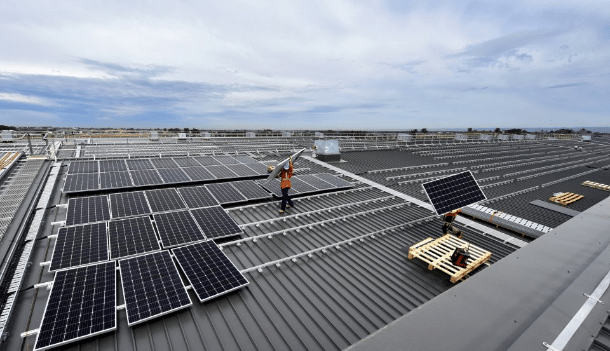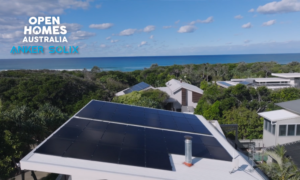Australia could forgo around 20,000 new energy jobs under the Federal Government’s proposed National Energy Guarantee (NEG).
An independent study by EY confirms a massive job reduction in the national electricity sector.
Climate Councillor Andrew Stock says Australia’s booming renewables industry would therefore “grind to a halt” under the NEG.
According to Mr Stock, the NEG would also virtually scrap investment in large-scale wind and solar power. An example of this is the Sydney Metro rail network’s solar array that began operation this week.
Almost no major solar energy construction would take place from 2020 onwards, figures show. This could lead to reduced power supply and skyrocketing energy prices.
Fewer energy jobs and large-scale solar projects
The Climate Council commissioned EY to update its modelling in the 2016 ‘The Renewable Energy Jobs: Future Growth in Australia’ report.

EY based the study on Energy Security Board projections for the NEG. This sets a benchmark of 28-36 per cent renewable energy by 2030.
If a 28 per cent renewables target is reached by then, findings include:
- 6,600 fewer net jobs in the electricity sector than business as usual.
- Fewer jobs in large-scale wind and solar farm construction and operation.
- Around 3,500 fewer net jobs in NSW electricity sector, with 600 less for Queensland and 300 less for South Australia.
Loss of potential jobs reaches 20,000 when modelled on a 50 per cent renewable target by 2030, the report shows.
Virtually no large-scale solar storage systems and construction would happen from 2020 based on a 28 per cent renewables target.
State and regional energy jobs to suffer under NEG
According to Mr Stock, restrictions on major clean energy projects would negatively impact state and regional economies.
This is because large-scale renewable energy projects mainly take place in regional and rural areas.
Yet Australia’s capital cities would also feel the pinch, as the Sydney Metro solar installation at the new Rouse Hill facility shows.
As big as a football field, it’s one of the biggest solar power systems mounted on a building in Australia.
The facility will service all Sydney Metro trains once the $8.3 billion rail network comes into operation in early 2019.
Without proper support and funding, it will be harder to get projects like this up and running in future.
Residential rooftop solar could also suffer through a lower solar government rebate.














































